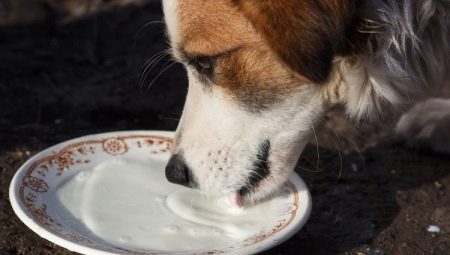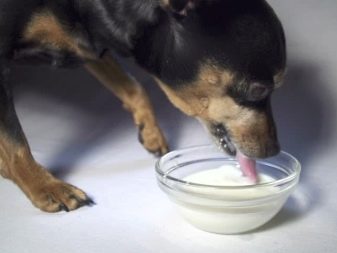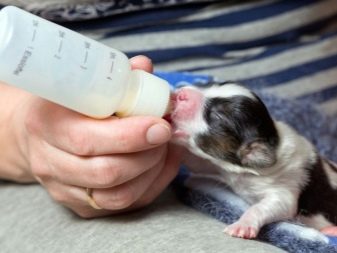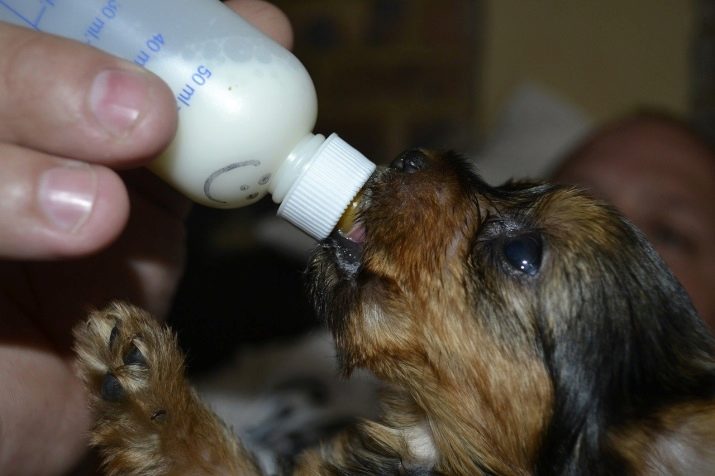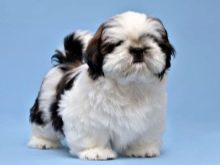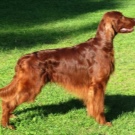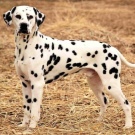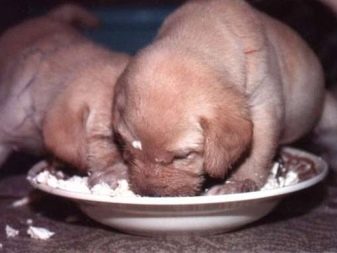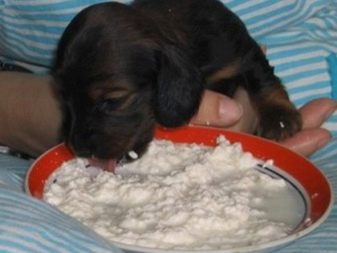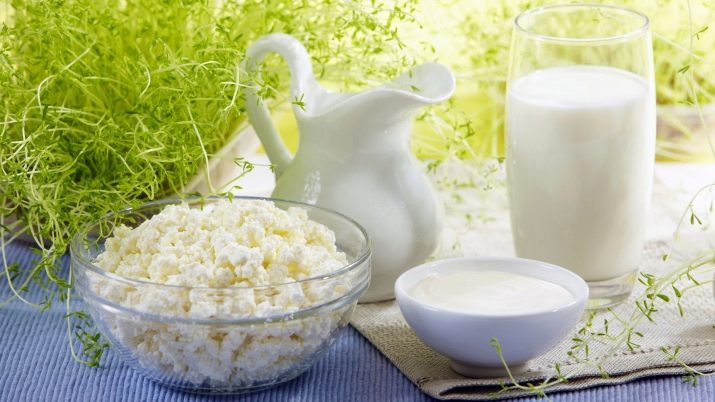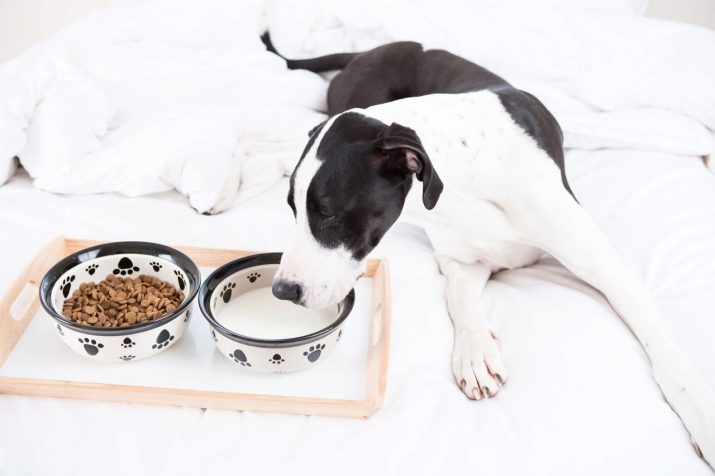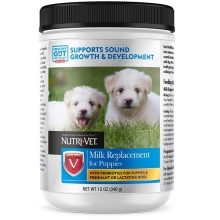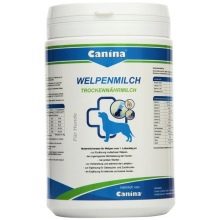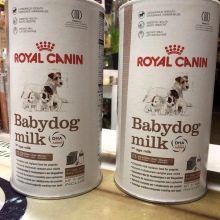Being born not light, all mammals in the first days and even months of their life, feed on mother's milk. The dogs in this matter are no exception. Small puppies for 10 days drink mother's milk 10-12 times a day, and after 30 days from the moment of their birth, the daily frequency of dairy food intake is reduced to 5-6 times. After one month of age, babies begin to enter the first lures, but milk is still in their diet and is the main component of nutrition. Having become adults, many dogs retain a love for milk and dairy products, eating them with pleasure.
Indications and Contraindications
Since newborn puppies do not have teeth, and their gastrointestinal tract cannot yet fully process coarse fibers and hard-to-digest fats, they need milk to feed. Besides, using the mother's milk, the puppy is formed immune system, and calcium and phosphorus, which are part of such food, help the dog to form a strong bone skeleton and teeth.
For cleavage of milk protein in the body of a puppy contains a special enzyme, which is called lactase, and when the dog becomes an adult, this enzyme produces little, and sometimes it is completely absent. Therefore, the main indication for drinking milk is the early age of the animal.
For for milk to be absorbed, it is best for dogs to drink exactly dog's milk. Babies at an early stage of development cannot digest foreign proteins contained in bovine or goat milk whey, therefore, only breast milk is optimal for them during breastfeeding. If you start feeding your puppy an alien dairy product, it will cause various digestive disorders and food digestibility, the animal will experience a nutritional deficiency necessary for its sustenance.
Cow's milk whey contains three times less milk protein, fat, phosphoric acid and iron ions than in dog's milk. If such a product is given to an adult, then there will be no damage to its nutrition, as the animal also receives other food as part of its diet. But for puppies such food will be inferior, so they additionally need to introduce into the composition of cow's milk raw chicken egg - this will increase the caloric content of cow's milk and increase the set of nutrients necessary for the development and nutrition of children. However, due to the high lactose content in such a diet, diarrhea can begin in puppies.
Goat's milk contains in its composition a fairly large amount of unsaturated fats and proteins, and it is also rich in calcium and retinol - this product is much more valuable for its nutritional value for dogs than the cow equivalent. In the body of puppies such food is absorbed very well, but you can only give it to babies if they do not have diarrhea.
Contraindications to the use of milk in food for dogs is a violation of the digestive system, accompanied by loose stools, and dairy products are also contraindicated if the animal has acute food poisoning or intestinal infection. Milk in such a situation will only aggravate pathological processes and will not bring any benefit to the dog's body. A healthy adult animal can drink any milk, but this should be done infrequently, as there is a risk of developing allergies or diarrhea.
Any milk contains in its composition an increased amount of calcium ions. There are breeds of dogs, in the body of which there is a tendency to the formation of oxalates when using dairy products. Oxalates are mineral deposits that form pebbles of various sizes, and they are found in the kidneys of a dog with urolithiasis. Oxalate pebbles being inside the kidney, in certain conditions, have mobility and cause pain to the animal. In addition, the pebbles can block the lumen of the ureters, causing an acute urinary retention in the animal's body, with the subsequent symptoms of increasing intoxication. Most of all, yorks, miniature schnauzers, poodles of dwarf species, shih tzu and bichon frize are prone to oxalate formation. The use of milk and fermented milk products is completely contraindicated for these breeds after they have stopped breastfeeding.
Some breeds of dogs after taking milk suffer from an allergic reaction. Such a problem most often affects animals with white coat color. The most prone to allergies breeds are considered to be setters, bulldogs, boxers, terriers, Dalmatians. Pugs, lapdogs and papillons are very susceptible to milk protein.
In certain breeds of dogs, after consuming milk, a severe swelling of the intestine begins due to gas formation. German shepherds have such a reaction to milk proteins. So that the animal does not develop diarrhea and dehydration, these dogs in adulthood, knowing their characteristics of the body, do not give milk at all.
In what form is it better to give?
Milk in the dog's body can do in different ways. For example, puppies, after 20 days of life, are moistened with white breadcrumbs with milk or boiled milk cereals from crushed cereals for feeding.
Whole cow's milk, before giving to an adult dog, can be diluted with boiled water. This lightweight version of the animal will be easier to digest, as it already has few enzymes that break down milk proteins.
Some adult individuals are absolutely indifferent to dairy products and even refuse to use them themselves, but there are also such dogs that have preserved their love for milk since childhood. Veterinarians recommend in this case, consider the following points:
- for feeding pregnant and lactating dogs, it is best to use goat's milk, and cow's - to dilute with water;
- if the dog has intolerance or allergy to dairy products, they can be replaced by lactose-free special formulations;
- if the animal does not tolerate dairy products, it is necessary to completely refuse the dog in its use.
Veterinarians believe that in case of poor digestibility of milk by the body of the dog, it is best to switch to fermented milk products. It is believed that such an addition to nutrition is more beneficial for the animal, but only if the fat content of the products does not exceed 1-3%. Such products can be cottage cheese, kefir, sour cream or yogurt. Sour-milk food improves the beneficial intestinal microflora of the dog and stimulates its work.
Dairy yogurt or ice cream is not recommended for dogs at any age, as these products contain a large amount of sugar, starch, dyes and fats. Cream with fat content up to 10% can be used only in a diluted form when feeding puppies that have just been weaned from the mother. In total, the daily rate for a puppy is 1 teaspoon of whole cream.
Any dairy products should not become a substitute for a full-fledged diet of an adult dog; therefore, it is impossible to replace one of the pet's feeds with milk or dairy product. Such nutrition is not basic, but supplementary, and it can be used occasionally, but not on a permanent basis.
Consumption rate
An adult dog, depending on its size and weight, gives whole milk from half to a whole glass 1 time per day. Puppies up to 2 months old need 80-100 milliliters of milk per day, from 2 to 4 months it is allowed to give 220-250 milliliters of milk, and after 4 months the veterinarians advise children to drink kefir their normal digestion and properly shaped stool.
In the last weeks of pregnancy, and already lactating dogs to replenish protein and fat components in their bodies.As well as to enhance the lactation process, milk and dairy products can be added to the main food. Per day, a lactating dog, depending on its breed and weight, can drink no more than 1 liter of milk. Of course, for miniature dogs, this maximum allowable volume is much smaller. You can correctly determine the daily dose of milk for your pet, after consulting with a veterinarian.
How to choose?
In the event that you notice your pet's desire to use fresh milk, you can treat it to a special lactose-free product. You can buy such milk in special veterinary pharmacies or pet stores. This product will not harm an adult animal, it can be safely given to the dog for food, without fear of causing vomiting, diarrhea or food allergies.
The lactose-free milk line is produced by feed manufacturers familiar to all dog breeders: Canina, Royal Canin, Nutri-Vet, Brit Kea, Trixie. This product is produced in sublimated form. Before you give the dog, it must be slightly diluted with warm boiled water. The proportions for dilution of each product manufacturer indicates on the packaging. Dilution of freeze-dried powder with water does not impair the taste and aromatic qualities of the milk produced from it, and dogs willingly consume such a drink at almost any age.
If you do not have the opportunity to find lactose-free products, then choosing natural milk, before giving it to your pet, make sure that the product is fresh. It is best to buy whole goat or cow's milk from trusted suppliers in order to know for sure that their animals do not have mastitis, brucellosis or other serious diseases. In the most ideal variant, for the safety of your dog's health, the milk that it will drink should be pasteurized or boiled.
Then watch the video with the advice of the vet about the possibility of feeding the dog milk.
